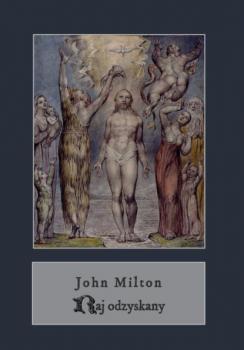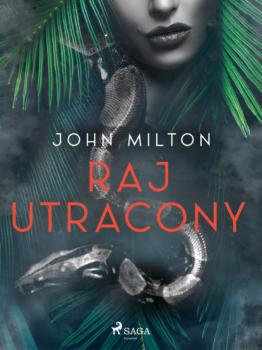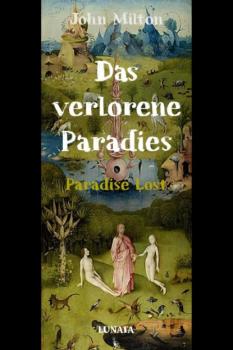ТОП просматриваемых книг сайта:
Джон Мильтон
Список книг автора Джон МильтонАннотация
Эпическая поэма Мильтона, прославившая его на весь мир «Потерянный рай» – гениальная поэма Мильтона, благодаря которой он стал одним из известнейших английских поэтов своего времени. Поэма основана на библейском сюжете падения человека и изгнания его из Рая. Как писал Мильтон в Книге Первой, его цель состояла в том, чтобы оправдать путь Бога людям (в оригинале «justify the ways of God to men»). Поэма представлена в переводе Николая Холодковского. ООО «Издательство АСТ», 2022
Аннотация
Гениальная поэма Мильтона, в основу которой лег библейский сюжет про изгнание человека из Рая. «Потерянный рай» – гениальная поэма Мильтона, благодаря которой он стал одним из известнейших английских поэтов своего времени. Поэма основана на библейском сюжете падения человека и изгнания его из Рая. Как писал Мильтон в Книге Первой, его цель состояла в том, чтобы оправдать путь Бога людям (в оригинале «justify the ways of God to men»). Поэма представлена в переводе Николая Холодковского. ООО «Издательство АСТ», 2022
Аннотация
Гениальная поэма английского политического деятеля, ставшая отражением своего времени «Потерянный рай» – гениальная поэма Мильтона, благодаря которой он стал одним из известнейших английских поэтов своего времени. Поэма основана на библейском сюжете падения человека и изгнания его из Рая. Как писал Мильтон в Книге Первой, его цель состояла в том, чтобы оправдать путь Бога людям (в оригинале «justify the ways of God to men»). Поэма представлена в переводе Николая Холодковского. ООО «Издательство АСТ», 2022
Аннотация
Paradise Lost (Das verlorene Paradies), das berühmte epische Gedicht des englischen Lyrikers und Denkers John Milton. In Blankversen wird die Geschichte des Höllensturzes der gefallenen Engel, die Versuchung Adams und Evas durch den Teufel, des Sündenfalls und der Vertreibung aus dem Garten Eden bildgewaltig beschrieben. Es spiegelt außerdem die politische Situation Englands Mitte des 17. Jahrhunderts wieder.
Аннотация
Musaicum Books presents to you this meticulously edited collection of the world's greatest novels and stories with religious theme and spiritual messages: Divine Comedy (Dante Alighieri) Paradise Lost (John Milton) The Pilgrim's Progress (John Bunyan) Zadig (Voltaire) Ben-Hur: A Tale of the Christ (Lew Wallace) Quo Vadis (Henryk Sienkiewicz) In His Steps (Charles M. Sheldon) The Story of the Other Wise Man (Henry Van Dyke) The Ball and the Cross (G. K. Chesterton) The Enchanted Barn (Grace Livingston Hill) The Grand Inquisitor (Fyodor Dostoevsky) Thus Spoke Zarathustra (Friedrich Nietzsche) Faust (Johann Wolfgang von Goethe) The Holy War (John Bunyan) Callista: A Tale of the Third Century (John Henry Newman) Martyr of the Catacombs: A Tale of Ancient Rome (James De Mille) The Temptation of St. Anthony (Gustave Flaubert) Personal Recollections of Joan of Arc (Mark Twain) Lord of the World (Robert Hugh Benson) The Child of the Dawn (Arthur Christopher Benson) Where Love is There God is Also (Leo Tolstoy) Loss and Gain: The Story of a Convert (John Henry Newman) The Uncalled (Paul Laurence Dunbar) The Swamp Angel (Prentice Mulford) The Revolt of the Angels (Anatole France) The Mysterious Stranger (Mark Twain) The Sorrows of Satan (Marie Corelli) Satan's Diary (Leonid Andreyev) Lilith (George MacDonald) Grace (James Joyce) The Student (Anton Chekhov)
Аннотация
Musaicum Books presents to you this unique collection with carefully picked out novels and short stories dealing with themes such as the presence of god, religion, theology and spirituality. Table of Contents: Divine Comedy (Dante Alighieri) Paradise Lost (John Milton) The Pilgrim's Progress (John Bunyan) Zadig (Voltaire) Ben-Hur: A Tale of the Christ (Lew Wallace) Quo Vadis (Henryk Sienkiewicz) In His Steps (Charles M. Sheldon) The Story of the Other Wise Man (Henry Van Dyke) The Ball and the Cross (G. K. Chesterton) The Enchanted Barn (Grace Livingston Hill) The Grand Inquisitor (Fyodor Dostoevsky) Thus Spoke Zarathustra (Friedrich Nietzsche) Faust (Johann Wolfgang von Goethe) The Holy War (John Bunyan) Callista: A Tale of the Third Century (John Henry Newman) Martyr of the Catacombs: A Tale of Ancient Rome (James De Mille) The Temptation of St. Anthony (Gustave Flaubert) Personal Recollections of Joan of Arc (Mark Twain) Lord of the World (Robert Hugh Benson) The Child of the Dawn (Arthur Christopher Benson) Where Love is There God is Also (Leo Tolstoy) Loss and Gain: The Story of a Convert (John Henry Newman) The Uncalled (Paul Laurence Dunbar) The Swamp Angel (Prentice Mulford) The Revolt of the Angels (Anatole France) The Mysterious Stranger (Mark Twain) The Sorrows of Satan (Marie Corelli) Satan's Diary (Leonid Andreyev) Lilith (George MacDonald) Grace (James Joyce) The Student (Anton Chekhov) The Screwtape Letters (C. S. Lewis) The Great Divorce (C. S. Lewis) Saul of Tarsus (Elizabeth Miller) A Deal with the Devil (Eden Phillpotts)
Аннотация
Areopagitica is John Milton's famous tract against censorship. Published in 1644, Areopagitica is named after a speech by Isocrates, a fifth century BC Athenian orator. The work is counted as one of the most influential and inspired defenses of the right to freedom of expression in history. It is also a personal issue for Milton who was submitted to censorship himself when he tried to publish…










